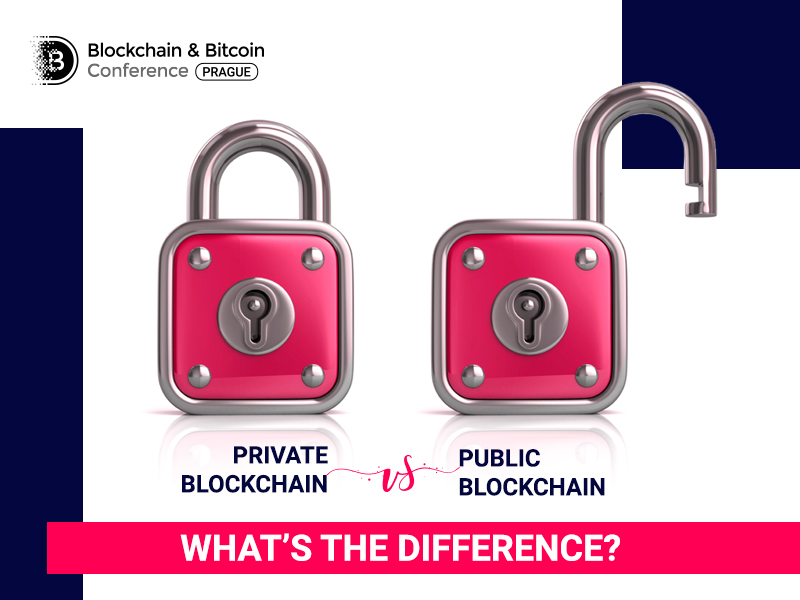
Blockchain tech is actively used by various companies. As estimated by PwC, 84% of organizations across the globe are implementing it in business processes. However, for hi-quality results, a company should make sure it applies a right blockchain.
Let us take a closer look at blockchain types we currently have, their cons and differences.
Two types of a blockchain
Blockchain exists in two types – private and public. Both categories are decentralized P2P networks that make data immutable.
The two blockchains also guarantee a high security level since data can be stored in a register. Due to it, information cannot be altered or deleted.
In spite of the similarities, private and public blockchains have vast differences in terms of accessibility granted to network actors.
Public blockchain

Public blockchain grants open and unlimited access to all users. Thus, everyone can scan all transaction records and data. It is also possible to create smart contracts.
BTC is a bright example of a public blockchain with free access. ETH also serves as an open distributed ledger that allows participants to create smart contracts and apps with this cryptocurrency as a base.
Pros
Public blockchain allows to verify any information thus contributing to antifraud and anticorruption policies.
Moreover, more participants can verify transactions due to public availability. A vast number of verifications makes a chain safer.
Cons
The main disadvantage of such a blockchain lies in slow transaction speed compared to a private one. What is more, each block has a limited quantity of transactions that, by the way, require enormous computation capacity.
Excessive openness of a public blockchain may become a drawback for some companies. Free access to transaction records eliminates privacy.
Private blockchain

Private blockchain limits access to data stored in a register as well as requests permission for participation.
To become a participant of this blockchain, users have to receive an invitation. Then, it is approved by a network creator or a moderator as well as other actors. In addition, only verified participants may access transactions.
Hyperledger Fabric from Linux Foundation and Ripple are examples of a private blockchain where only verified participants have the right to confirm transactions.
Pros
Private blockchain has high transaction speed so a number of transactions in a block grows.
What is more, a private blockchain does not face scalability problems, regulations are easily followed, and companies have complete privacy.
Cons
Private blockchain lacks trust due to confidential information that is difficult to access to. Thus, fraudulent operations may sneak away and some data can be altered.
What is more, this type of blockchain may face safety issues for a small number of participants that increases the risk of register attacks.
Another disadvantage of a private blockchain is centralized control since all rules are stipulated by one or a group of individuals.
Which blockchain to choose?
Public blockchain offers complete transparency and immutability so companies focused on data confidentiality should choose another variant. An open network would benefit corporations that want to gain a high trust level between users and mitigate risks.
Meanwhile, a blockchain with increased transaction speed and good scalability is the right choice for those businesses that look for a high privacy level.
Crypto experts at Blockchain & Bitcoin Conference Prague will feature the blockchain technology.



